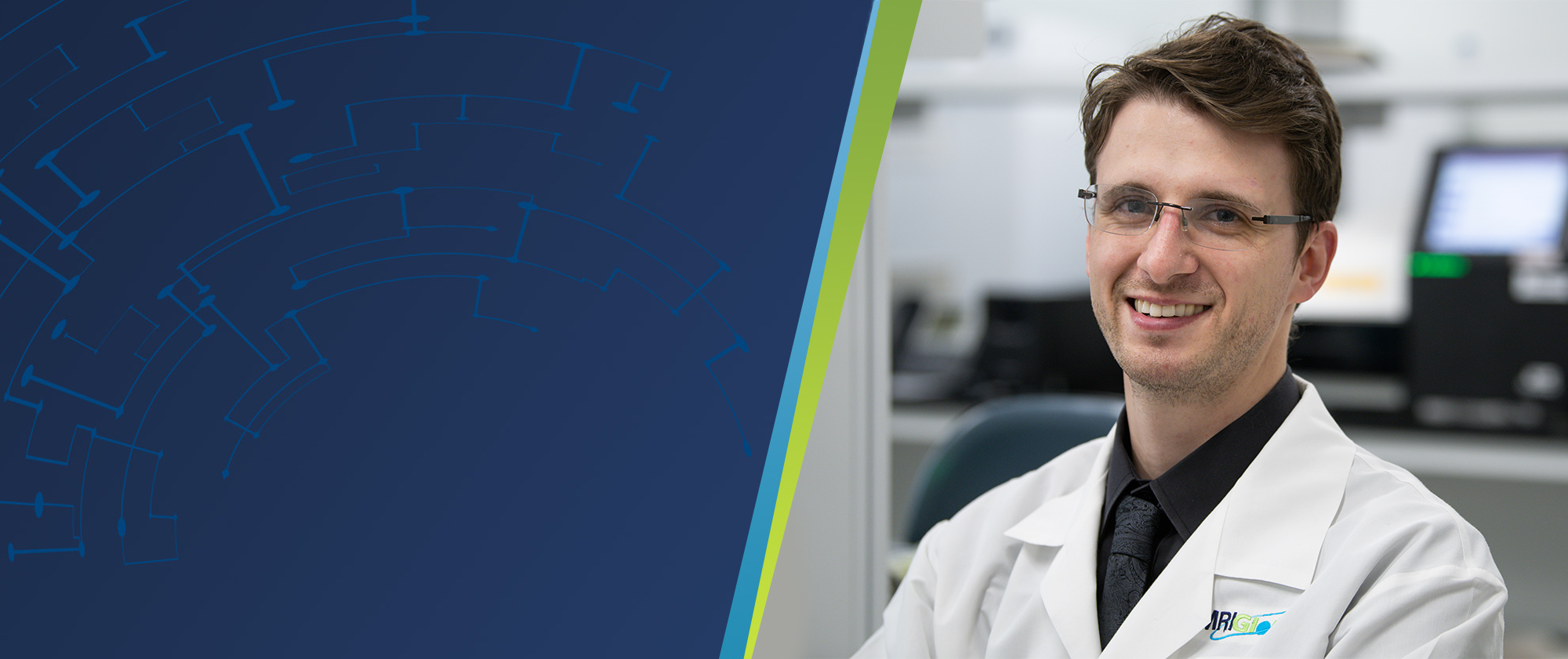Introducing Luca Popescu, Ph.D., DVM, veterinarian-turned-global infectious disease expert, especially in the rarefied world of higher risk, tightly controlled BSL-3 pathogen lab work.
Dr. Popescu specializes in virus culture and propagation; viral neutralization assays; development of animal models; veterinary care for research animals as well as developing scientific manuscripts and proposals. He provides scientific and technical oversight to staff and study directors involved in infectious disease research, and assists in pharmacodynamics/pharmacokinetics studies providing veterinary insight on pathologic lesions and interpreting animal morbidity/mortality. Dr. Popescu is experienced in working with viral and bacterial pathogens, with an emphasis on BSL-3 pathogens. He holds a Ph.D. in pathobiology and a doctor of veterinary medicine from Kansas State University. Dr. Popescu is currently focused on developing and characterizing small and large animal models for COVID19, and testing medical countermeasures (vaccines and various therapeutics) in these models.
When did you know you wanted to be a scientist?
I started working in a swine virology lab during my first year of undergrad, since I thought it would help me get into vet school. It definitely did, but after I got into vet school I had to step away from the lab work. I kept finding myself venturing back to the lab whenever I could to speak with old colleagues and see how the research was going, I really missed that atmosphere. So during my second year of vet school I decided I wanted to get a Ph.D. in virology on top of my veterinary degree and I really haven’t looked back. As an added plus, Kansas State University provided tuition assistance for the remainder of my veterinary school program.
What was your pathway to becoming a scientist?
I’ve always been interested in medicine and biology. My parents are both doctors so that’s been a constant throughout my whole life, but I didn’t want to do anything too repetitive. After working in a research lab, I saw how results from one project dictate how subsequent experiments are conducted and how everything progressed in a stepwise fashion. I really liked how our new experiments built both upon the research being done in our lab and by our collaborators all over the country and even internationally. Studying virology was perfect since I could use a lot of the knowledge about pathology and disease states I learned in vet school to inform my research and keep everything in context. I think the veterinary degree is important for keeping an eye on the big picture and knowing how the virus impacts not only the animal, but also how it may impact the population. After graduating veterinary school, my research focus shifted to Select Agent swine viruses, which are viruses that are not present in U.S. swine herds, so all of our research had to be done in Biosafety Level 3 (BSL-3) laboratories to ensure the viruses were well contained. MRIGlobal has a rigorous biosafety program and I really enjoy working as part of that team.
What is your role at MRIGlobal?
I am a manager in the Life Sciences – Medical Countermeasures and Therapeutics Resource Group. As a Study Director, I’m in charge of the in vivo virology projects, and COVID-19 has obviously been my main focus this past year. I have been in charge of replicating the SARS-CoV-2 models in hamsters here at MRIGlobal. I also worked on developing assays for these viruses to test medical countermeasures in vitro. I’ve helped out in a veterinary capacity on a lot of different studies, whether it would be performing physical exams on everything from mice to macaques, to performing surgeries on hamsters and rabbits. I also manage eight technical staff, and I’ve managed staff ranging from Technicians to Principal Scientists. I wear a lot of different hats.
What excites you about working at MRIGlobal?
The work is very diverse and I’ve learned to work with a lot of research animal species. I’ve worked with a variety of bacterial and viral pathogens at Biosafety Level 3 (BSL-3). There are not a lot of places in the country certified to work with BSL-3 Select Agents. Being able to continue to work at that level was a major draw. Work at this level involves pathogens like anthrax, SARS, MERS, and plague that can cause some very serious diseases and can potentially have global impacts. COVID19 (caused by SARS-CoV-2) is the perfect example of this: because we had our BSL-3 labs, we were able to quickly respond to the need for research. We help both private companies and government agencies better understand the nature of the virus and how it might be curtailed.
What are your interests outside of work?
I have two young daughters at home (1.5 and 3 years old). I’m enjoying watching them grow up and teaching them to be silly. My wife and girls are definitely the best part about my life. When I have a moment to myself, I like to be outdoors as much as possible. I really enjoy fishing and being out on the lake or pond. I also like to do triathlons (the short distance ones). Running, biking, and swimming are how I stay in shape. My dog, Mr. Bojangles (Bobo for short), is my constant running companion. He also likes to watch over me as I tinker with my bike. I have two cats (Beans and Pinecone), but they’re better suited for academic pursuits (sleeping on my lap as I work on my laptop).

